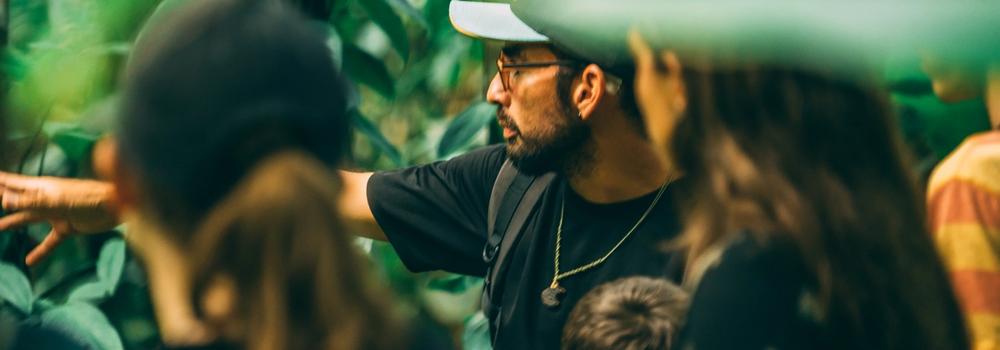Published September-18-2020
Where are the people? Curious natives want to know.
Six months into the pause, the locals are wondering, where are all the people? Given there are only a few people around, I believe they might think they can take us.
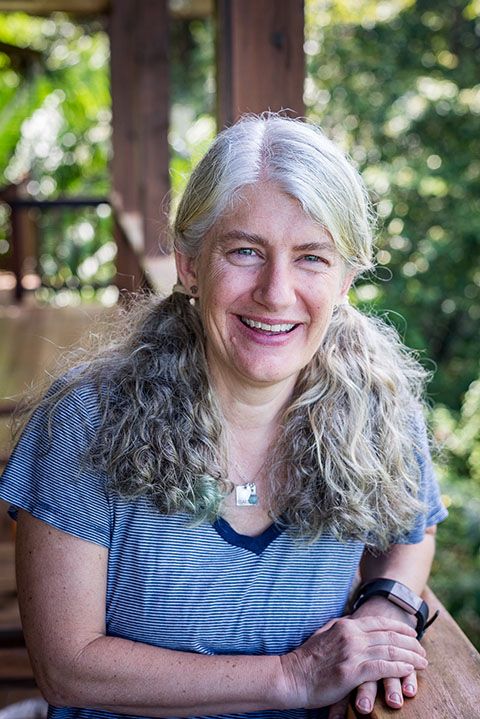
Renee
Owner/Operator at Tranquilo Bay Eco Adventure Lodge focusing on hospitality, hotel administration and volunteer efforts.
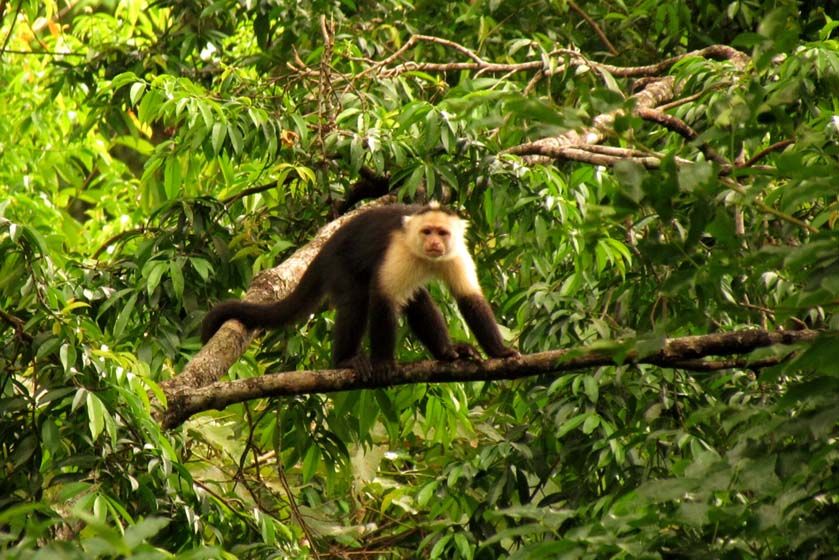
Six months into the pause, the locals are wondering, where are all the people? Given there are only a few people around, I believe they might think they can take us.
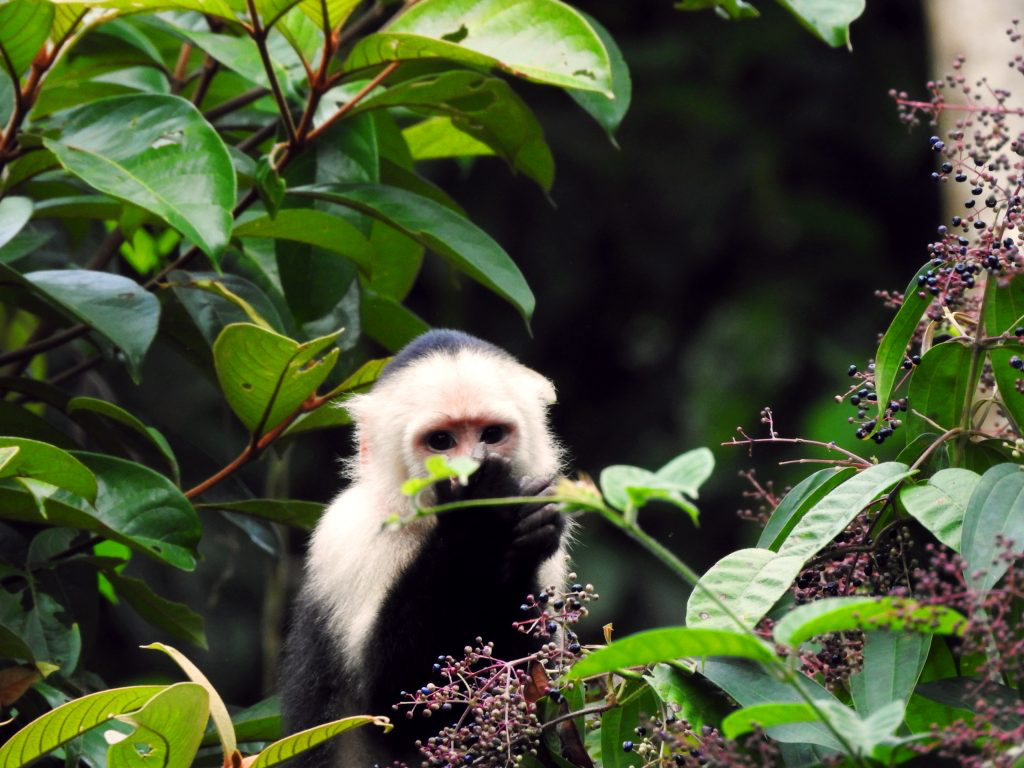
I check on each of the cabanas every other day. So, when I walked up to the porch of cabana four and a chair was missing, I wondered where it had gone. The fire extinguisher was turned on its side and a walking stick was lying down directly in front of the French doors. I paused, had there been a storm in the night? No.
Looking over the side of the porch, I found the chair. Broken to pieces, but somehow still upright. Were the kids playing on this porch? Not sure, note to self, investigation necessary.
After I turned on the air-conditioner in that cabana, I continued my walk around the others. I remembered a couple of things out of place at cabana eight, so I went over to check it out. As I approached, I heard something unusual out in the open area.
A barrel of monkeys! White-faced capuchins, to be exact. Looking at me with serious teenage angst, as I made my way up to the cabana. Hmm. Was it possible they were my vandals?
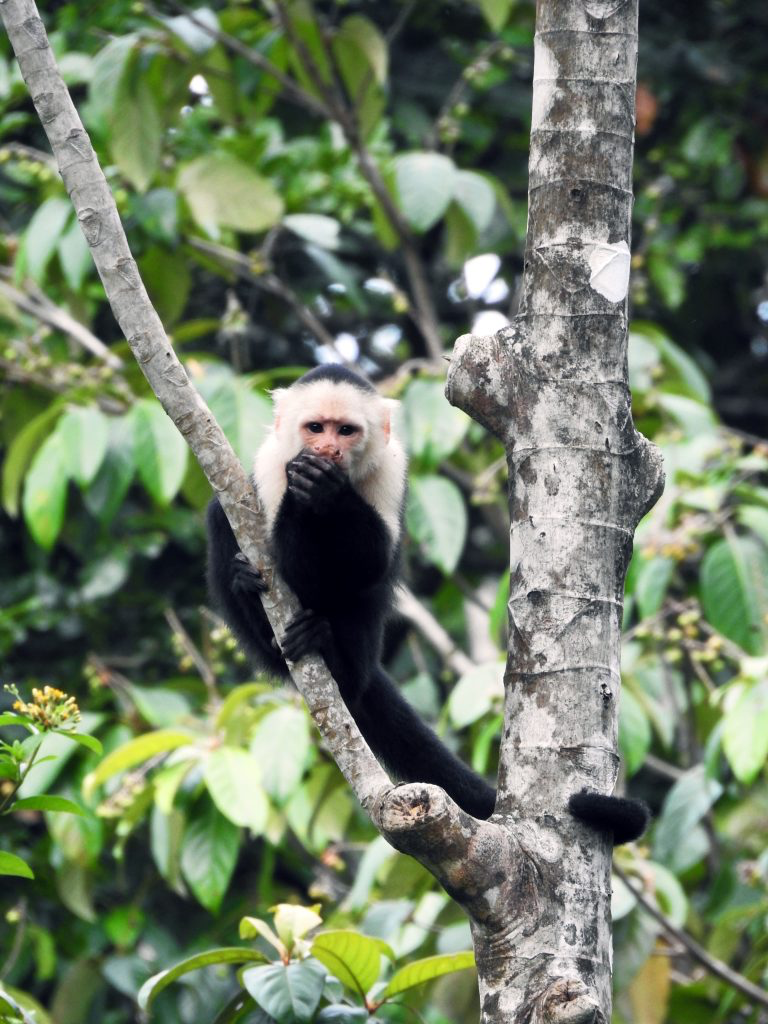
The troop had been visiting cabanas five and six of late, staying mostly within the trees. A few brave individuals had decided to walk onto cabana five’s porch. Could it be the same rascals who had been on the porches of the other units? When I went up to the dining room, I asked Jim, Jay, and the kids if they thought a monkey could toss a chair off a cabana porch. Based upon what we had seen of late, the unanimous response was sure. What to do now?
The same day, we encountered a group of monkeys on the porch of cabana five. We shooed them away, but only over to cabana six. The next day, Scott scared a capuchin as he was trying to come into the dining room to pilfer a banana off the bar. Inside the DMZ!
Something had to be done. We wanted to avoid “five little monkeys jumping on the bed.” We like watching monkeys, but we don’t want them on porches or attempting to enter any building, or God forbid, taking off with your binoculars, camera, or scope. As much as they might enjoy these tools to spy on the other monkey tribes, we are sure you are not interested in donating them to the monkey cause. Nor do we want any of our guests waking up to this:
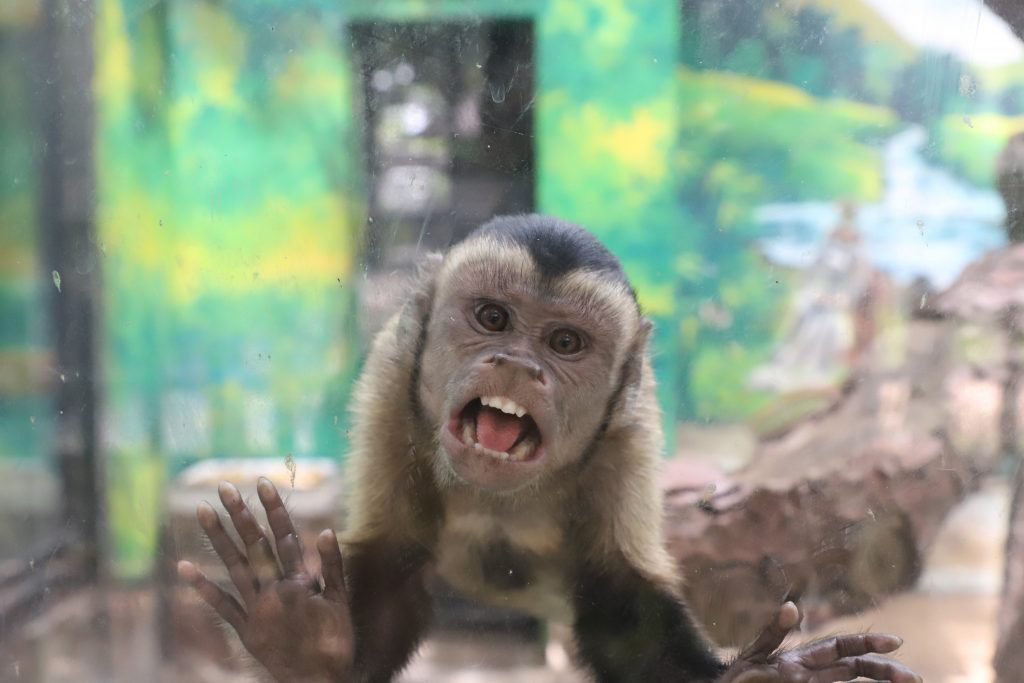
In fairness, this monkey business had really started in January when we were placing bananas out for the birds on a feeder hanging off of the porch. Many of our wildlife operators have asked for access to view and photograph the local birds directly from the porch. Once the local monkeys found free food was available, they visited the bird feeder each day. We knew we had to keep them off of the porch. Scott quickly engineered a change to the bird feeders and put together a “monkey” feeder to keep them away from the porch and the bird feeders. It worked, but only until it didn’t.
We remembered a story about a similar problem some friend of ours had with monkeys entering one of their buildings and fighting with the other tribe they saw in the mirror. Their guests insisted that the local kids were tearing the place up, however, a game camera later confirmed it was indeed locals – just not humans. So, they made a curtain and had guests close the curtain whenever they left the building. The reflection was no longer available. No more troop skirmishes in the bathroom.
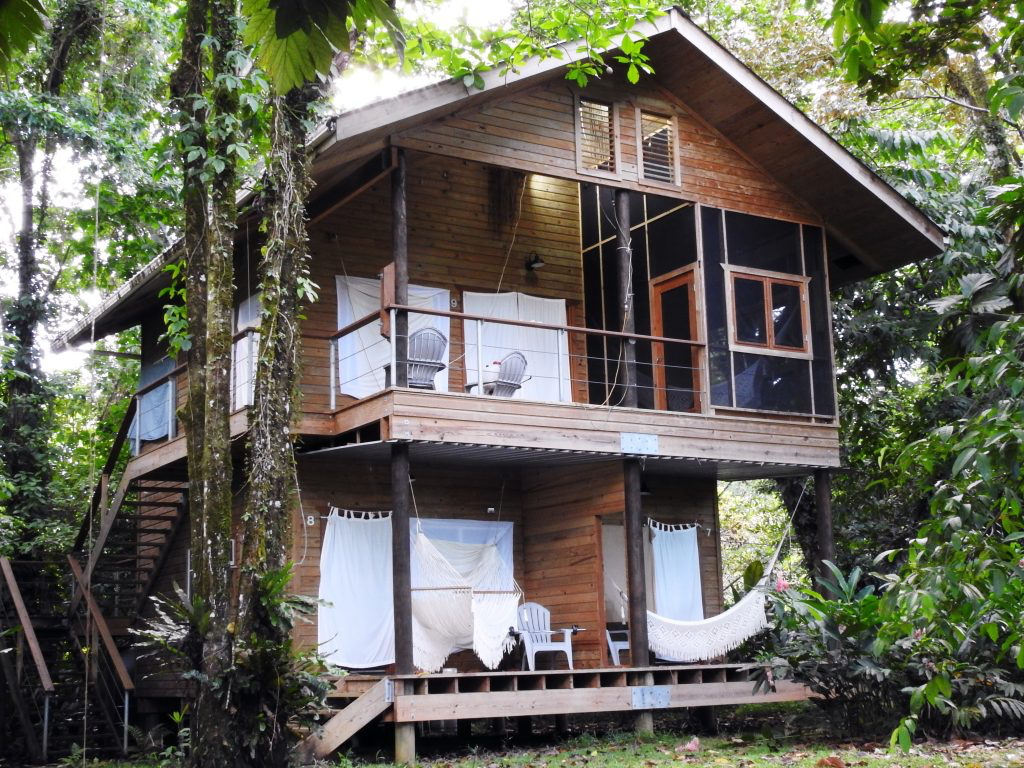
Our solution was along the same lines, but we are hoping it is temporary. Now all of our units have “curtains” over the porch windows and French doors. Thus, no reflections are available for the monkeys to wage war with the “visitors.” We also cleaned up the palm fronds and trimmed some of the trees near units, so our buildings were less accessible to our native friends.
It appears the problem is abating—limited signs of monkeys near our structures for a little over a week. Maybe we will install a distortion mirror nearby so they can “reflect” upon their behavior.
Outside of wanting to avoid broken glass, we need to avoid allowing the monkeys to make porches a regular part of their daily commute. They are wild animals and should be observed from afar, not quite so up close and personal as on your porch.
Many years ago, when we had just opened, a capuchin ran off with Jay’s glasses. It was a pet at a restaurant in town. Jay went over to take a look at him and before he knew what happened, the monkey was up a tree bending his new toy in all directions. The owner quickly responded by retrieving Jay’s freshly bent glasses and delivering a couple of cold beers for the trouble.
From Mentalfloss “Eleven Mischievous Facts about Capuchin Monkeys” by Rosemary Mosco:
“Professor Susan Perry of UCLA has been studying white-faced capuchins in the jungles of Costa Rica for 25 years. It’s grueling work, she says; “I’m always wet, chewed on, or stung.” But her hard work has paid off. She and her team have observed some amazing monkey business.
Capuchins often invent new behaviors—Dr. Perry calls them traditions—that spread through the group. One of them is, well, shoving your finger in someone else’s eye. Other traditions include sniffing each other’s hands and sucking on tails, fingers, and ears. Capuchins even bite a tuft of hair from another’s face and pass it around with their mouths. This might all be about reinforcing social bonds [PDF]. Just don’t try it with your coworkers.”
Monkeys have also been observed to do some pretty disgusting things. They clean their feet with urine. They great each other by sticking their fingers up each other’s noses. Jim and Jay have stories to tell from construction days about how the monkeys would throw their own waste at passersby. Cute from afar, not so great where you want to pass some time. Thus, changing their behavior before it becomes a pattern is essential.
We want to avoid potential problems where the monkeys have become so accustomed to humans that they cause mischief as in some Costa Rican national parks. In any place where the monkeys are used to daily interactions with humans, they may approach visitors, grab or steal personal belongings, and in some cases, get aggressive. This can become a serious problem because there are shared risks in that humans are exposed to possible bites, and the animals have changed their natural behavior. Human interaction with monkeys can also spread illness such as a virus amongst the monkeys. Better to leave each other alone and observe from a distance. At Tranquilo Bay, we like our wildlife wild!
Watching monkeys from afar is cool. Seeing them eat, jump, and move about the jungle is fun. We plan on keeping them off the buildings because, as we all remember, “George promised to be good. But it is easy for little monkeys to forget” (H. A. Ray, Curious George).
